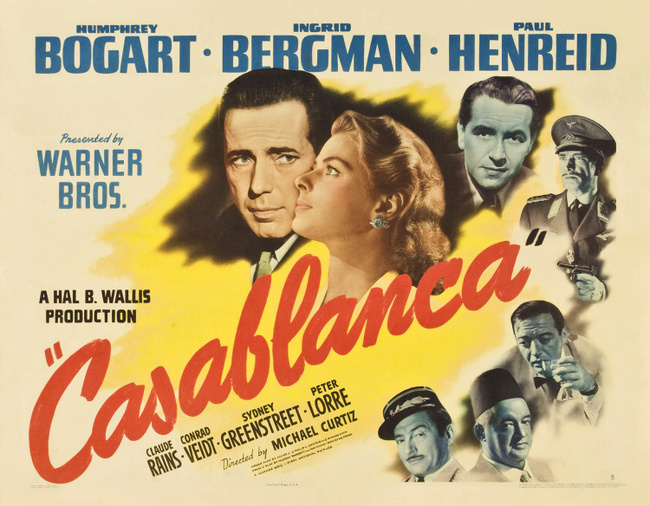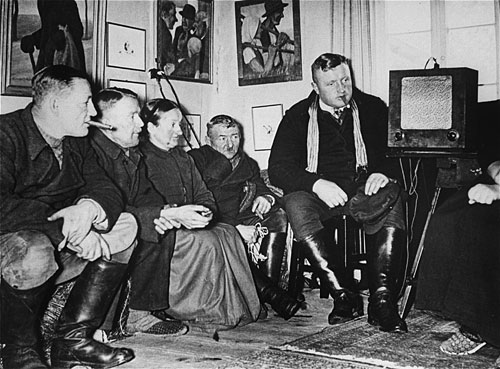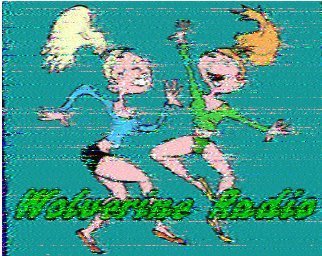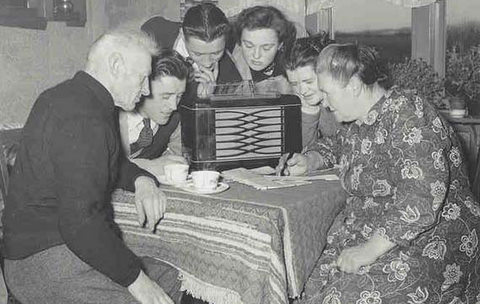Consider a New Way to Combat Pirate Radio Stations
Everyone should agree that pirate radio stations – by any definition – are completely illegal. Given other responsibilities and obligations, however, the Commission’s resources are stretched, and it seems that stopping pirate radio is not at the top of the priority list. While this reality is not surprising, we need to consider other ways to remove the scourge that is pirate radio. One approach would be to give broadcasters a new right to use the legal process to go after such stations, letting loose broadcasters’ legal bloodhounds to root out the violators. This isn’t a new idea as it has been done in other circumstances outside of spectrum policy, such as to combat email spam, and we should consider it here, too.
It is important to start by recognizing the truth about pirate radio stations. They are not cute; they are not filling a niche; they are not innovation test beds; and they are not training grounds for future broadcasters. If broadcasting were a garden, pirate radio would be poisonous crabgrass. Put another way, pirate radio participants are similar to outlaws who rob a retail store and then sell the stolen inventory online. In practice, pirate radio causes unacceptable economic harm to legitimate and licensed American broadcasters by stealing listeners. Pirate operators also cause “harmful interference” that inhibits the ability of real broadcasters to transmit their signals and programming, which provide such vital services as emergency alerts, critical weather updates, political information and news. And, pirate radio can disproportionately impact minority-owned stations as they undercut their financials and can cause harmful interference to legitimate stations serving minority populations.
Let’s also dispel another myth: pirate radio does not increase media diversity. From time to time, arguments have been made that we should look the other way because some pirate radio operators may be minorities, or the stations’ content appeals to minority listeners. To be clear, the race, color, religion, national origin, sex, or any characteristic of a pirate radio operator should be completely irrelevant to the discussion. Their operations are illegal – end of story. Just imagine if we allowed this argument to be persuasive in other spectrum enforcement decisions: Commission spectrum and licensing policies would be thrown into complete chaos and wireless systems would cease to operate.
Instead of embracing pirate radio, approaches like the NAB’s Broadcast Leadership Training Program should be encouraged to prepare underrepresented populations for leadership and ownership positions in broadcasting. Alternatively, those truly interested in operating a legal broadcast station can seek to participate in the Commission’s July 2015 auction, in which 131 FM construction permits will be available, many in smaller and less expensive markets.
If there are unmet needs or underserved populations, the solution is not to condone an illegal station, but to convince the applicable existing broadcaster to be more responsive. Collectively, broadcasters are uniquely attuned to the needs of their communities and promoting localism because the success of their stations and ultimately, their livelihoods depend on it. Moreover, there are other technologies available to target broadcasts to a distinct group within a community, such as low power FM stations or Internet radio stations, which are free, easy to establish and not regulated by the Commission.
To combat pirate radio, I am suggesting that we replicate a concept contained in the CAN-SPAM Act of 2003. Specifically, section 7(g) authorizes an Internet Service Provider to “bring a civil action in any district of the United States with jurisdiction” against (1) false or misleading header information; (2) aggravated violations relating to commercial electronic mail; (3) failure to place warning labels on commercial electronic mail containing sexually oriented materials; or (4) a pattern or practice involving deceptive subject headings, failure to include return address, or continuing to transmit after a recipient objection.[1] This provision provides a mechanism for ISPs to enjoin further violations and recover actual and aggravated damages and attorney fees. In other words, it authorizes ISPs to seek out the bad actors for a host of illegal activity and recoup their losses. The framework serves as a good model to provide additional options – outside of the FCC process – for eliminating and deterring pirate radio.
There is no doubt that pirate radio stations are often highly mobile, making tracking and finding such stations tedious and sometimes futile. But with the right technology to pinpoint signal strength and a little luck, the origination point of the pirate radio broadcast can be located, often leading to some back office or mobile van. In fact, broadcasters have told me of instances where they were able to accurately detect and locate pirate radio stations, meaning it can be done. And locating mobile pirate operators, while difficult, is no more so than trying to locate the purveyors of unwanted spam who can be stationed anywhere in the world with Internet access and a server. If it can help in the case of spam, or even if it acts as a further deterrent, why not give it a try here? Who do you think would cause more concern to a pirate station: the busy FCC or a broadcaster seeking to protect its station’s rights and revenues?
In all fairness, the CAN-SPAM’s private right of action for ISPs hasn’t been used all that often and hasn’t magically eliminated spam. No one who worked on the law ever expected it to do so. Instead, the private right of action was meant to be one more tool in the toolbox. In practice, the provision has been used by a select number of companies determined to be ISPs by the courts, including Yahoo!, Facebook, and My Space. Facebook has been of the more frequent users of the provision, using it to obtain judgments in no fewer than three cases leading to statutory damages and injunctive relief.
On a side note, pirate radio has been mentioned recently in conjunction with the Commission’s proposal to reorganize and close certain FCC field offices. To be clear, I am not taking a stance on that matter at this time, and my proposal should not be seen in any way related. Few details have been made available to me regarding the field offices, and I was not a party to the plan’s development. The field office discussion should remain completely separate because the problem with pirate radio and lack of attention exists today under the current enforcement structure. Whether altering the field offices would further denigrate our enforcement efforts against pirate radio is a debate for another time.
Private enforcement of spectrum license rights in court should remain limited in any event. I am in no way suggesting that the Commission transfer its spectrum enforcement authority to the court system, and any private right here would be in addition to, not supplanting, the Commission’s responsibilities, nor undermining any common law rights of broadcasters. And to allow for some private action in this specific case should not be interpreted as my support for more lawsuits and certainly not more class-action suits. As in the case of spam, I would not recommend allowing consumers (e.g., a station’s listeners) to file lawsuits. But if we can narrowly permit a limited and targeted private right of action here to be used only by broadcasters, it could provide a valuable tool to tackle a persistent problem in some radio markets. To the extent that this idea garners consideration, it may require a change in current law, which is solely within the purview of Congress. At such a point, I would leave the discussion in the capable hands of our elected representatives.
Though I know commissioner O’Rielly is mostly focusing on local FM and AM pirates, I can say that I’ve never heard shortwave pirates interfere with commercial stations; they occupy rather unoccupied parts of the bands.







